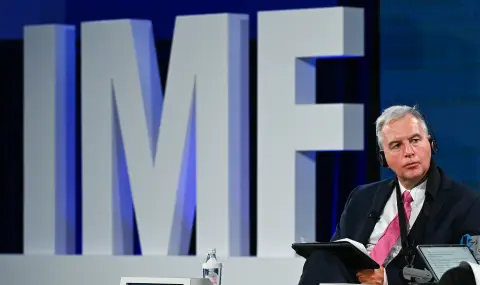The International Monetary Fund (IMF) expects Bulgaria to join the eurozone in 2026, said Alfred Kammer, Director of the Fund's European Department, in response to a question from BTA during the Fund's Spring Meetings in Washington, USA.
"Certainly yes", said Kammer, when asked whether the institution assessed it as possible for Bulgaria to enter the eurozone in 2026.
Helge Berger, deputy director in the European Department, added that the Fund was following "very carefully" this issue.
"It is clear that Bulgaria is making serious efforts to meet the conditions for joining the eurozone. We see that the deficit is in line with the fiscal framework and there is progress in terms of inflation, which is starting to decline", added Berger. According to him, the next step is for the issue to be discussed at the European level.
"For our part, we expect the accession process to continue. This will be a positive step for the country. Joining means lower trade costs, a more favorable environment for foreign investment and other benefits. But Bulgaria needs to enter the eurozone with the same stability with which it has operated in recent years. This includes a sound fiscal policy, caution towards risks in the financial sector and completion of the structural reforms that the government has started. Bulgaria wants to enter the eurozone, but it needs to do so on a stable basis", Berger added.
Regarding the forecasts for Europe, Alfred Kammer pointed out that in the short term, the expected economic activity will be affected by a decline in productivity and shortcomings in reforms that need to be overcome. The IMF representative stressed that increasing trade is key for Europe and supports the European Union's efforts to conclude new trade agreements. "The more trade, the better", he said.
The IMF recommends accelerating labor market reforms, including retraining and upskilling the workforce, which will have a significant economic impact.
According to the Fund, the European Central Bank (ECB) will cut its interest rates in the summer of 2025 by another 25 basis points (currently the ECB's deposit facility rate is 2.25 percent - editor's note), Kammer added. The ECB is expected to keep its main interest rate at 2 percent unless there are significant economic shocks that require a reassessment of monetary policy.
The head of the IMF's Europe department said there was optimism about Germany's new fiscal package, which could support growth and improve infrastructure despite the need for structural reforms and reducing bureaucracy.
